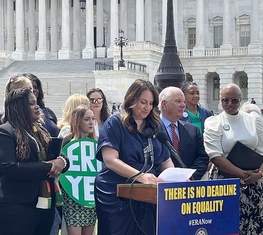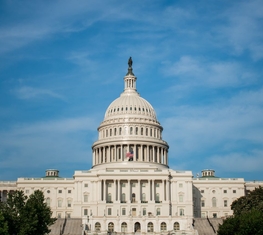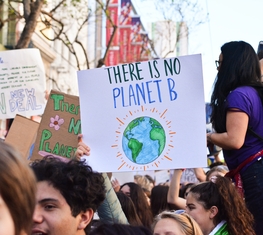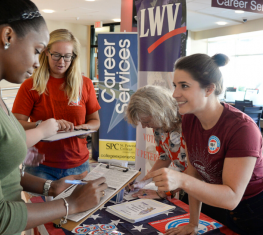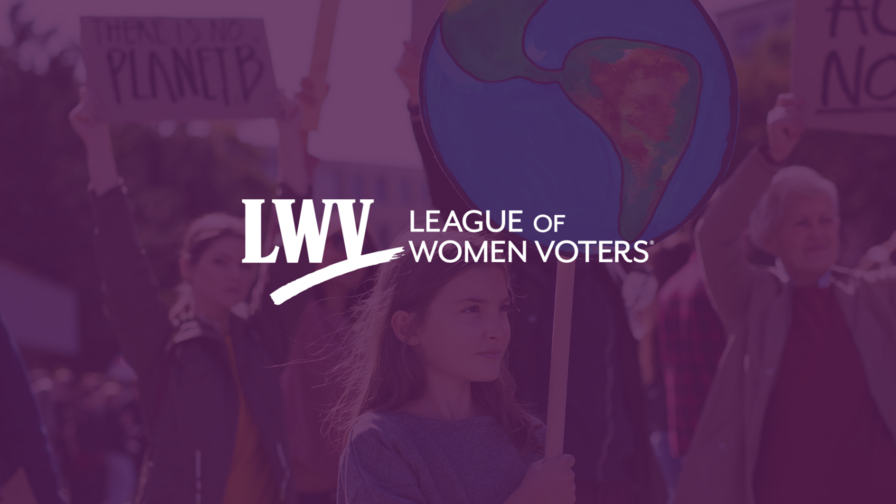The Climate Crisis and the Urgent Need for Government Action
The climate crisis continues to devastatingly and inequitably impact the health and well-being of people and our planet.
Climate change is largely driven by increased greenhouse gas (GHG) emissions from human activities. Scientists believe that to prevent the worst impacts of climate change, we must rapidly and significantly reduce these emissions.
As effective climate action requires political commitment and coordinated laws and policies, the League advocates for bold and just executive and legislative actions to help ensure a stable climate for future generations.
Climate Change and Greenhouse Gases
Climate change is the long-term shift in regional weather patterns (e.g., heatwaves, heavy precipitation, droughts, etc.) and average global temperatures. These changes are largely due to a buildup of GHGs, which trap heat in the atmosphere, causing the earth’s surface temperature to rise. For the past 150 years, almost all the increase in earth’s atmospheric GHGs has come from human activities such as burning fossil fuels.
Fossil fuels, including coal, oil, and natural gas, are burned to generate energy. Diesel and gasoline are two examples. Burning fossil fuels releases GHGs, including carbon dioxide (CO2), and accounts for more than 75% of all GHG emissions.
In the US in 2021, CO2 accounted for nearly 80% of all GHG emissions from human activities. The primary sources of GHGs were transportation (e.g., cars, trucks, ships, trains, and planes), electricity production, and the production of raw materials and goods. Knowing the sources of GHG emissions is important in identifying how to reduce them.
The Latest Climate Change Science
Scientists believe that to prevent the worst impacts of climate change, we must limit the global temperature rise to 1.5 degrees Celsius above pre-industrial (1850-1900) levels.
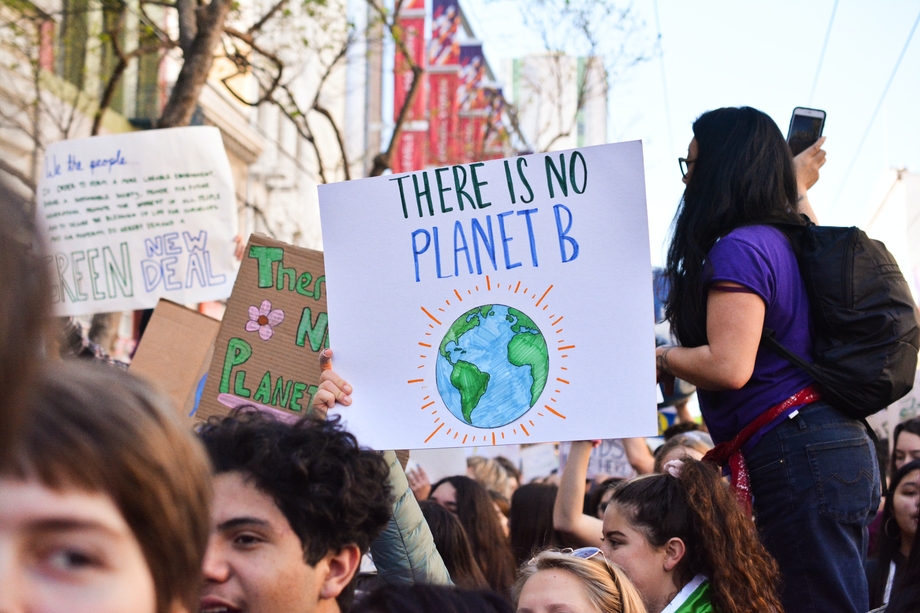
In 2023, the UN’s International Governmental Panel on Climate Change (IPCC) released its Sixth Assessment Report synthesis on climate change, finding that under current GHG emissions rates and reduction targets, the earth will likely surpass 1.5 degrees Celsius above pre-industrial levels by 2030.
The report also says that:
- Climate change has been caused by human activities, predominantly GHG emissions.
- There is a rapidly closing opportunity to secure a livable and sustainable future for all.
- Limiting human-caused global warming to 1.5 degrees Celsius above pre-industrial levels will require deep, rapid, and sustained reductions of GHGs. It also requires reaching at least net zero CO2 emissions by the early 2050s, followed by net negative CO2 emissions, meaning that we will have to remove CO2 from the atmosphere through actions like reforestation.
- Globally, we will need to transition from fossil fuels without carbon capture and storage to either renewable energy (e.g., solar or wind) or fossil fuels with carbon capture and storage.
- Effective climate action requires political commitment, coordinated laws and policies, and access to technology and financing.
- Prioritizing equity, inclusion, climate justice, and social justice leads to more sustainable outcomes.
Climate Change as a Democracy Issue
The League believes climate change is a serious threat facing our nation and planet and supports climate goals and policies consistent with the best available science to ensure a stable climate system for future generations. We recognize the risks that climate change poses to our democracy through natural disasters, poor air quality, food and water insecurity, forced human migration, and global conflict, all of which threaten the ability for overall participation in our democracy.
Tackle climate change and other issues in your community by joining your local League.
The League advocates in favor of laws, regulations, and policies to mitigate climate change and its impact. We also advocate for the expansion of voting rights for all eligible voters through the expansion of pro-voter policies like early voting, mail and no-excuse absentee voting, online and same-day voter registration, automatic voter registration, etc. These policies can help overcome some of the barriers to voting that result from, and will continue to worsen with, climate change.
LWVUS recently became an IPCC Observer, meaning it will be able to help nominate experts to prepare future IPCC reports. LWVUS is also an Observer to the United Nations (UN), meaning it observes certain international conferences, such as the annual Conference of the Parties (COP) Climate Change Conference.
A Climate Legislative Opportunity
The League has also endorsed pending legislation known as the Children’s Fundamental Rights and Climate Recovery Resolution, which recognizes the disproportionate impact of the human-caused climate crisis on the health, economic opportunity, and fundamental rights of children in the US. It calls on the executive branch to develop a national, comprehensive, science-based, and just climate recovery plan to put the nation on a trajectory consistent with goals to reduce global atmospheric carbon dioxide below 350 parts per million by the year 2100 and stabilize the climate system.
What You Can Do
- Take one minute to urge your members of Congress to support the Children’s Fundamental Rights and Climate Recovery Resolution!
- Join the League’s petition urging Congress to improve eligible voters’ ability to cast a ballot and have it counted;
- Follow the League of Women Voters’ materials and work on the environment;
- Join your local League to learn about and support climate efforts in your area; and
- Talk with your community about how climate change is a social issue, affecting people inequitably.
The Latest from the League
Over one-third of the food produced in the US is never consumed — it is wasted. Food waste means all resources to grow the food are also wasted — energy, labor, water, and fertilizers. The energy loss alone is enough to power 50 million homes annually.
Carbon emissions are causing widespread and potentially irreversible damage to the environment — and also have a significant impact on the economy.
While some people rationalize our failure to decrease emissions by keeping that the actions needed to do so would hurt the economy, the costs of doing nothing are even higher and are increasing with every day of inaction.
We are still awaiting meaningful action on climate in Congress, and remain hopeful that members of Congress will see that climate change doesn’t exist in a silo — it is inextricably connected to many other issues, including our economy. Shifting from a linear to a circular economy is one potential path for mitigating the risk of climate change.
Sign Up For Email
Keep up with the League. Receive emails to your inbox!
Donate to support our work
to empower voters and defend democracy.

